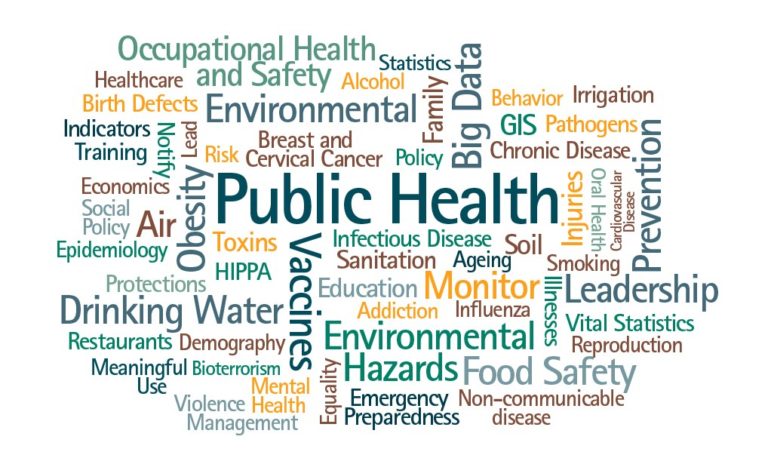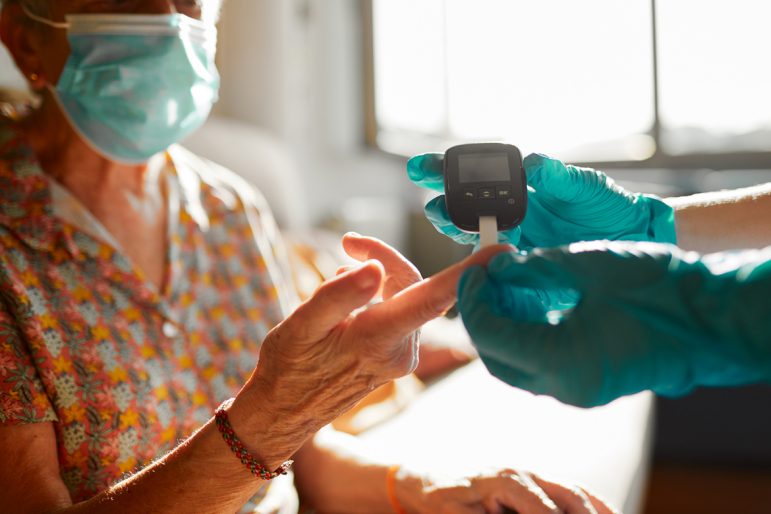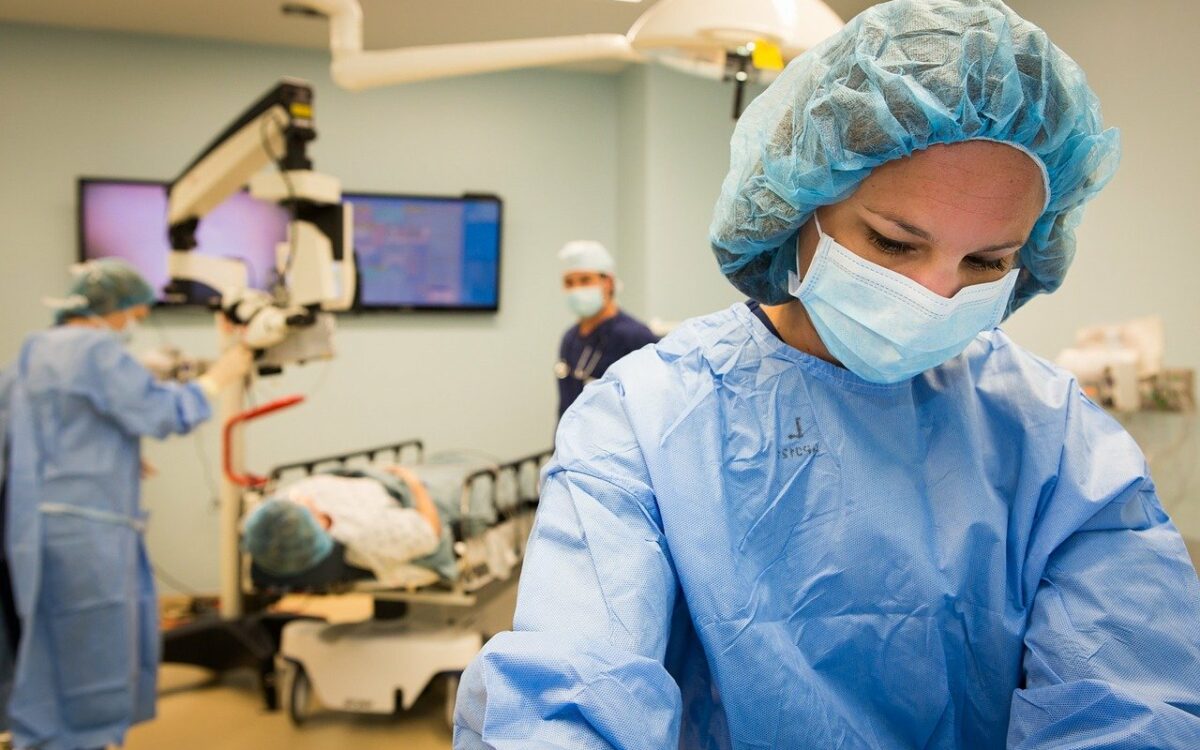California has long needed more health care workers, and the coronavirus pandemic only made the demand more pressing. Filling the gap is the goal of a unique joint venture that creates certificate programs to recruit and train new medical technicians, as well as lab and dental assistants throughout the state.
It’s called Futuro Health, a nonprofit venture by Kaiser Permanente, a Bay Area-based health system, and the Service Employees International Union-United Healthcare Workers West, the California branch of 100,000 members of the national health care workers union.
Futuro doesn’t directly train what are termed allied health professionals — those who offer a wide range of diagnostic, technical and therapeutic services in the field of health care. Rather it helps those who do. It connects with colleges to create specific programs, helps design courses, recruits students and even offers scholarships.
“We talk to employers. We select college partners. We handhold the students and underwrite the scholarships because we’re trying to grow this talent pool in areas where we know there are shortages,” said Van Ton-Quinlivan, chief executive officer of Futuro Health and a former vice chancellor for workforce and digital futures in the California Community Colleges system.
By 2024, the state will need 500,000 new health care workers, according to a 2021 report from California Competes, a nonprofit focused on improving graduation outcomes. That’s mostly due to a growing, and aging, population.
Those health care workers will need to “reflect the communities that they serve,” said Ton-Quinlivan. Latinos are underrepresented in the health workforce despite making up 40% of the state’s population, according to a Public Policy Institute of California (PPIC) report on the state’s health care worker shortage found. That can be an issue when “provider cultural competence and Spanish language proficiency are important indicators of improved health care quality for Latino populations,” the report said.
The timing was perfect for creating Futuro. Before the coronavirus pandemic, Kaiser Permanente and SEIU-UHW agreed to commit $130 million starting Futuro in 2020. The goal is to train 10,000 Californians to work as medical coders, medical assistants and other allied health professions over the next four years.

Futuro Health isn’t a degree-granting institution. Instead, the organization works as a third-party intermediary using its network of union members, including 50,000 members at Kaiser, to recruit students who are often family and friends of SEIU members. The organization connects these potential students to certificate-granting education programs that will quickly help them move into the field for free. Futuro provides scholarships for students to be in the programs.
Ton-Quinlivan said the massive shortage in health care workers indicates a “structural” problem that no one college, organization or program can fix alone. That’s one reason why Futuro didn’t focus on becoming an accredited training institution like a college because that “path is a little too slow and it’s not sufficiently agile for what’s happening in health care,” she said.
The organization started recruiting in 2020 and had over 9,000 applicants in its first year and, so far, more than 3,000 in the first half of 2021. Although they don’t have graduation numbers available yet, the first group of students from 2020 is completing their programs this summer, said Hortencia Armendariz, healthcare justice director at SEIU-UHW and a member of Futuro Health’s board.
Unfortunately, many of the students Futuro comes into contact with haven’t had positive past educational experiences, she said.
“We run into applicants who had already started school, but they used up their (financial aid) benefits, or they went into student debt because they got discouraged with school and decided to drop out and didn’t finish,” Armendariz said. “We’re giving people an opportunity because we don’t want these issues to be an impediment to getting into an allied health field.”
As long as students are 18 and have a high school diploma or GED, they can apply to any of Futuro Health’s programs.
Anjali Singh, 22, from South San Francisco, learned about Futuro Health from her mother, who works for Kaiser. Singh aspires to be a nurse and recently graduated from Notre Dame de Namur University, a Catholic institution in Belmont, with her bachelor’s in biological sciences.

But she also wanted a “head start in the health care field” and found Futuro Health’s community health worker programs as a way to start working with underserved and low-income communities while she applies to nursing schools for her master’s degree.
“A lot of nursing schools right now are looking for you to have patient care experience,” Singh said. “And I don’t feel I’ve done anything like that yet. But I have developed this passion for community health work over the last year.”
During her last year in college, Singh volunteered at a homeless shelter in San Mateo County to examine how the Covid pandemic affected the people using the shelter and the available resources as part of her senior project.
And taking Futuro Health’s community health classes, which focus on prevention, management and treatment of health, has only solidified her decision to become a community health worker.
“The classes are kind of big, and bigger than what my college classes were, but the attention the instructors give you still are so personalized,” Singh said.
Singh still wants to explore becoming a nurse, but there are other health care roles and needs that aren’t as apparent to first-generation college students like herself. Futuro Health allows her to explore a different side of the career she wants at a low cost, she said.

Futuro Health has no limitations on the types of programs it partners with, and it has the flexibility to adopt new programs faster than traditional colleges. For example, the demand for telehealth coordinators, a liaison between health care professionals and customers or clients, grew out of the pandemic. Futuro Health scanned college programs both within the state and across the country to find ones that could quickly train students. The organization settled on a 15-week, fully online, advanced telehealth coordinator certificate out of the University of Delaware with a 90% completion rate. Still, the college couldn’t register more than 30 people at a time, Ton-Quinlivan said.
“We worked with them to think about how they could change so they could take hundreds of people,” Ton-Quinlivan said. So Futuro, as the intermediary, stepped in to handle the enrollment process.
The organization isn’t limited to working with any one type of educational partner. Futuro recruits and places students with public partners like Santa Barbara City College, one of the state’s 116 community colleges, MTI College, a private institution in Sacramento, and Western Governors University, a national online nonprofit institution.
The organization is in early discussions to bring the Kern Community College District into its network of partners.
Although colleges across the state have been working to better recruit students, Futuro’s approach to focusing on people who are already employed and looking to improve their skills was “really intriguing to us,” said Bonita Steele, director of programs and compliance in the community college district.
Steele said that the organization’s connection to Kaiser and SEIU for recruiting students made a partnership even more appealing.
And in some cases, where there is a need but no program, Futuro Health created a certificate of its own through Google. Google offers a certificate in information technology, but Futuro Health wanted to redevelop that credential for the role of a health IT specialist — an emerging field due to the pandemic. Health IT specialists resolve IT issues in health care settings like hospitals and clinics. So, Futuro Health teamed with Johns Hopkins University in Baltimore to develop a course offered by Coursera, the global online open course provider, that leads students to a certificate after six months.
Futuro’s Health IT specialist program became vital for Adam Carpenter when he lost his job working for a video game company last year. The Los Angeles resident learned about Futuro from his wife, who is a licensed practical nurse for Kaiser.
“I was looking to do something different and more stable because the video game industry is so volatile,” he said.
Carpenter started the Futuro program in November and completed the coursework by the end of February. The certification process, however, took longer as he took practice exams to prepare. Carpenter completed his certification in June and was recruited by AlliedUp to work in their IT department as a systems engineer. That company is a Futuro partner that connects health care workers with other employers.
“It was a really great opportunity,” Carpenter said. “It’s literally a free education and pretty good job placement afterwards. It really changed my life.”
Ton-Quinlivian said some of Futuro’s partners have excellent programs. Still, the organization has asked them to evolve their curriculum, such as offering medical assistant labs not only on weekdays but weekends.
Navigating the world of adult education and certificates can be “very confusing to figure out unless you have somebody in the know,” Ton-Quinlivian said.
Futuro Health’s partnerships with other colleges come when many institutions, like the Kern Community College District, look for ways to recruit more students. National and state enrollment in colleges and universities has fallen over the last year, with many people opting out of a traditional higher education experience.
“At this moment in time, people are very nervous about committing to degrees, and they’re more in favor of upskilling and getting industry-valued credentials,” Ton-Quinlivan said. “We try to take the guesswork out of it and streamline a lot of this process.”
GOING DEEPER
Learn more about Futuro’s programs, the employers they work with, and how to apply HERE.
